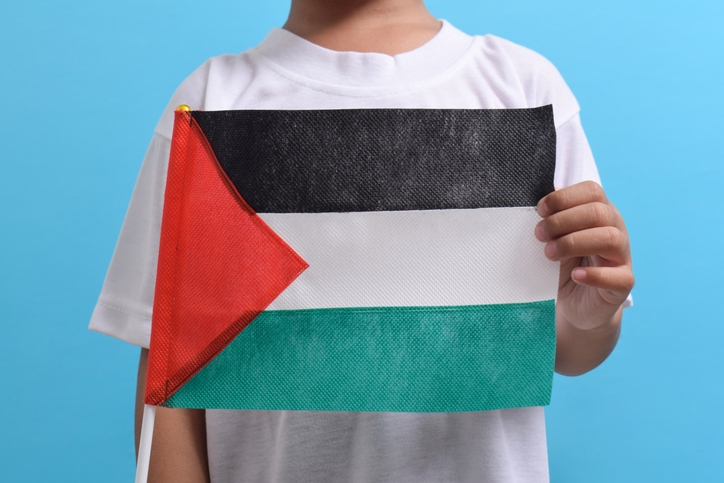'Full of tears', 1000 Palestinian children graduate from Gaza school for orphans
August 21, 2025
“The children wept, as no parents were there to share the moment – their parents had been killed by the Israeli army,” said one observer.
More than 1000 Palestinian children orphaned by Israel’s genocidal assault on Gaza took part in a bittersweet graduation ceremony on Monday at a special school in the south of the embattled enclave as Israeli forces continued their US-backed campaign of annihilation and ethnic cleansing nearby.
Dressed in caps and gowns and waving Palestinian flags, graduates of the school at al-Wafa Orphan Village in Khan Younis — opened earlier this year by speech pathologist Wafaa Abu Jalala — received diplomas as students and staff proudly looked on. It was a remarkable event given the tremendous suffering of Palestinians in Gaza, especially the children, and Israel’s obliteration of the Strip’s educational infrastructure, often referred to as scholasticide.
Organisers said the event was the largest of its kind since Israel began levelling Gaza after the Hamas-led attack of 7 October 2023. Israel’s assault and siege, which are the subject of an International Court of Justice genocide case, have left more than 62,000 Palestinians dead, including over 18,500 children – official death tolls that are likely to be a severe undercount.
Yesterday, over 1000 orphans at the Al-Wafa Orphan Village in Gaza graduated from school. The children wept, as no parents were there to share the moment – their parents had been killed by the Israeli army. pic.twitter.com/IOzKkSU9M8
— Ihab Hassan (@IhabHassane) August 19, 2025
The Palestinian Central Bureau of Statistics reported in April that nearly 40,000 children in Gaza have lost one or both of their parents to Israeli bombs and bullets in what the agency called the world’s “largest orphan crisis” in modern history. Other independent groups say the number of orphans is even higher during a war in which medical professionals have coined a grim new acronym: WCNSF – wounded child, no surviving family.
Hundreds of thousands of other Palestinians are starving in what Amnesty International on Monday called a “deliberate campaign”. Thousands of Gazan children are treated for malnutrition each month, and at least 122 have starved to death, according to local officials.
Early in the war, the United Nations Children’s Fund called Gaza “the world’s most dangerous place to be a child.” Last year, UN Secretary-General António Guterres for the first time added Israel to his so-called “List of Shame” of countries that kill and injure children during wars and other armed conflicts. Doctors and others, including volunteers from the US, have documented many cases in which they’ve concluded Israeli snipers and other troops have deliberately shot children in the head and chest.
There are also more child amputees in Gaza than anywhere else in the world, with UN agencies estimating earlier this year that 3000-4000 Palestinian children have had one or more limbs removed, sometimes without anaesthesia. The administration of US President Donald Trump — which provides Israel with many of the weapons used to kill and maim Palestinian children — recently stopped issuing visas to amputees and other victims seeking medical treatment in the US.
All of the above have wrought what one Gaza mother called the “complete psychological destruction” of children in the embattled enclave.
Indeed, a 2024 survey of more than 500 Palestinian children in Gaza revealed that 96% of them fear imminent death, 92% are not accepting of reality, 79% suffer from nightmares, 77% avoid discussing traumatic events, 73% display signs of aggression, 49% wish to die because of the war, and many more “show signs of withdrawal and severe anxiety, alongside a pervasive sense of hopelessness”.
Iain Overton, executive director of the UK-based group Action on Armed Violence, said at the time of the survey’s publication that “the world’s failure to protect Gaza’s children is a moral failing on a monumental scale”.
Republished from Common Dreams, 19 August 2025
The views expressed in this article may or may not reflect those of Pearls and Irritations.

